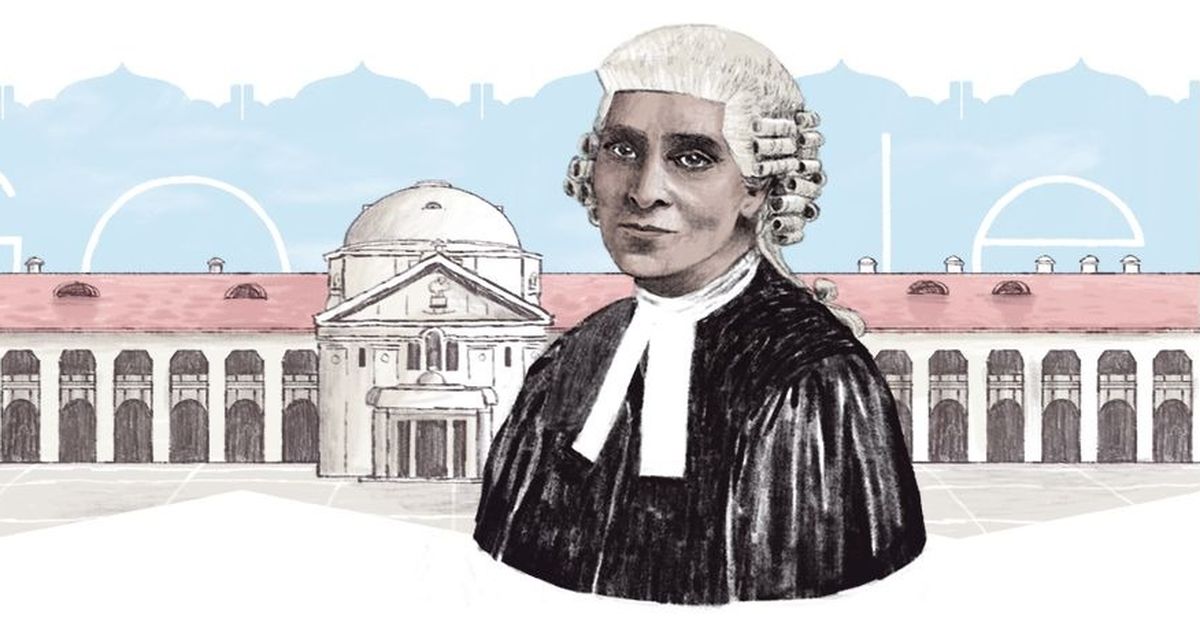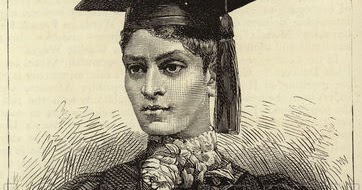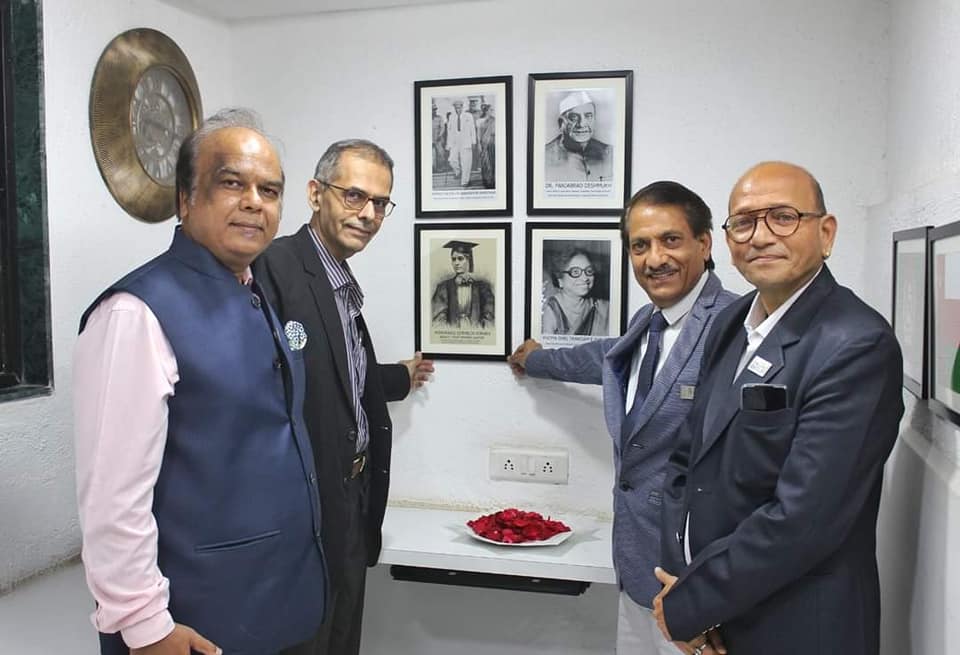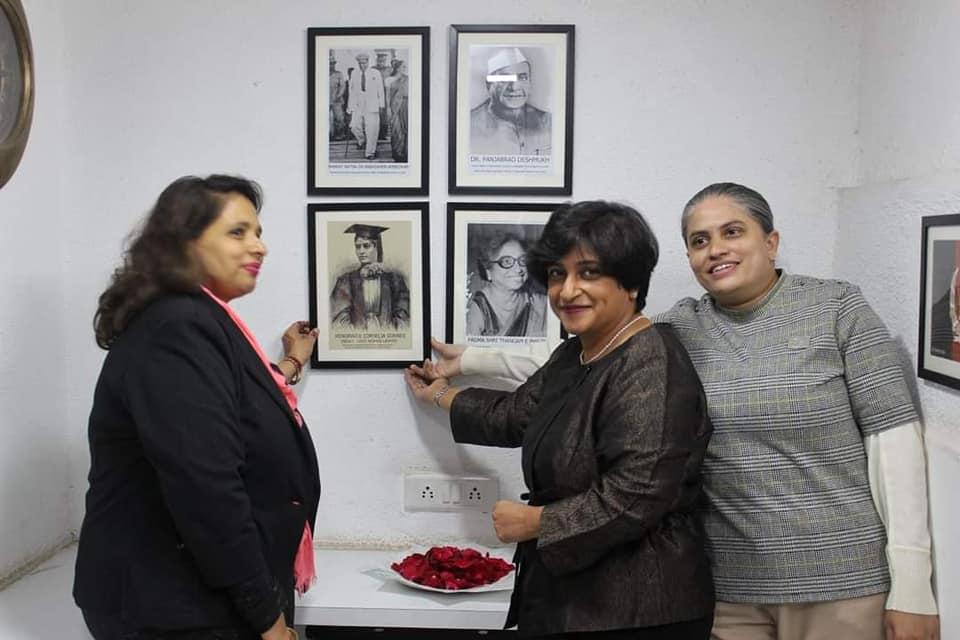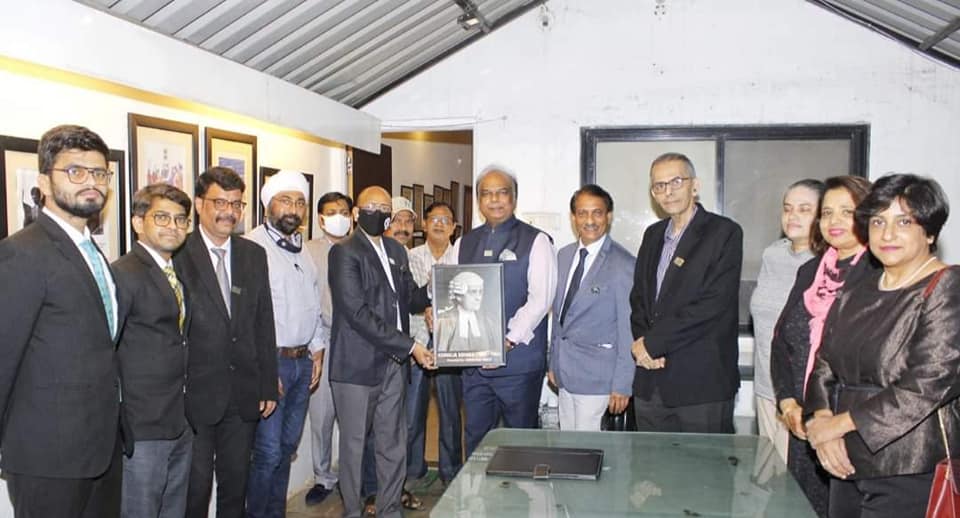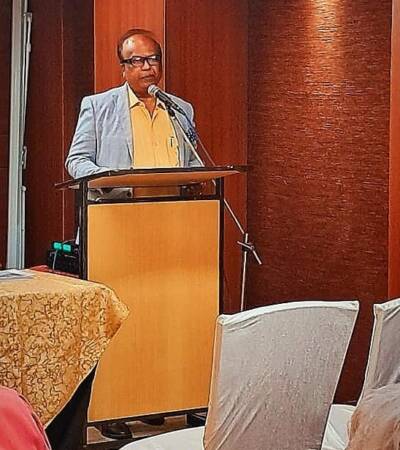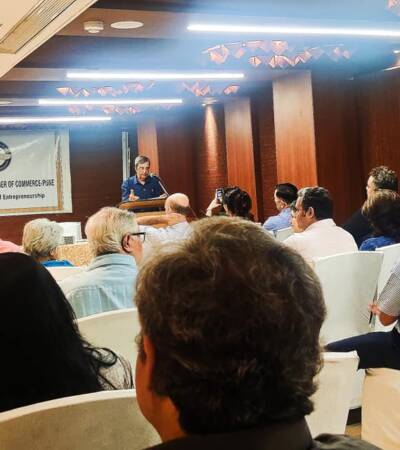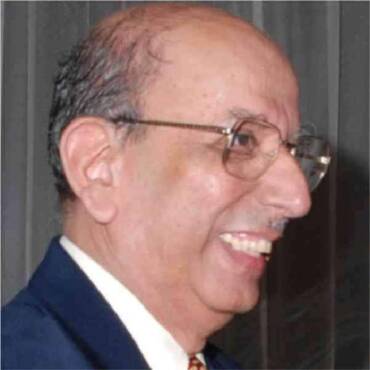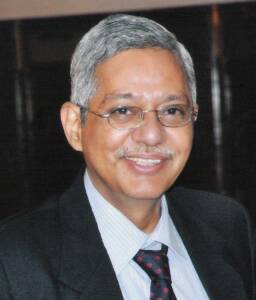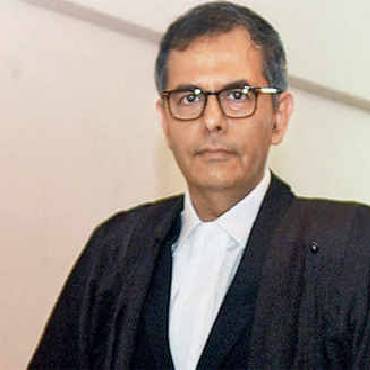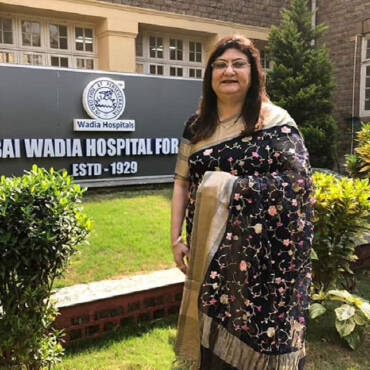Cornelia Sorabji (15 November 1866 – 6 July 1954) was an Indian lawyer, social reformer and writer. She was the first female graduate from Bombay University, the first woman to study law at Oxford University, and the first female advocate in India and Britain.
The Board dedicated specially to remember her work and teachings which she has done in the fields of law and social reforms and in inspirational mode this Board will work for bringing glory to her as India and Parsi Community has failed to recognize her and her great work towards Women Empowerment and Social Justice System of India.
More details about her life which is an inspiration to today’s Indian Generation, Parsi Community and Law Education System of India.
Born in Devlali to a Parsi, she was one of nine children, and was named in honor of Lady Cornelia Maria Darling Ford, her adoptive grandmother. Her father, the Reverend Sorabji Karsedji, was a Christian missionary, and Sorabji believed that she had been a key figure in convincing Bombay University to admit women to its degree programs. Her mother, Francina Ford, had been adopted at the age of twelve and brought up by a British couple, and helped to establish several girls’ schools in Poona (now Pune). Due in part to her influential social position, Ford was often consulted by local women on inheritance and property rights. Many of Sorabji’s later educational and career decisions would be heavily influenced by her mother.
Cornelia Sorabji had five surviving sisters including educator and missionary Susie Sorabji and medical doctor Alice Pennell, and one surviving brother, two other brothers died in infancy.
She spent her childhood initially in Belgaum and later in Pune. She received her education both at home and at mission schools. She enrolled in Deccan College, and claimed to have topped the Presidency in her final degree examination, which would have entitled her to a government scholarship to study further in England. According to Sorabji, she was denied the scholarship, and instead took up a temporary position as a professor of English at a men’s college in Gujarat.
After becoming the first female graduate of Bombay University, Sorabji wrote in 1888 to the National Indian Association for assistance in completing her education. This was championed by Mary Hobhouse (whose husband Arthur was a member of the Council of India) and Adelaide Manning, who contributed funds, as did Florence Nightingale, Sir William Wedderburn and others. Sorabji arrived in England in 1889 and stayed with Manning and Hobhouse. In 1892, she was given special permission by Congregational Decree, due in large part to the petitions of her English friends, to take the post-graduate Bachelor of Civil Law exam at Somerville College, Oxford, becoming the first woman to ever do so.
Sorabji was the first woman to be admitted as a reader to the Codrington Library of All Souls College, Oxford, at Sir William Anson‘s invitation in 1890.
Upon returning to India in 1894, Sorabji got involved in social and advisory work on behalf of the purdahnashins, women who were forbidden to communicate with the outside male world. In many cases, these women owned considerable property, yet had no access to the necessary legal expertise to defend it. Sorabji was given special permission to enter pleas on their behalf before British agents of Kathiawar and Indore principalities, but she was unable to defend them in court since, as a woman, she did not hold professional standing in the Indian legal system. Hoping to remedy this situation, Sorabji presented herself for the LLB examination of Bombay University in 1897 and the pleader’s examination of Allahabad High Court in 1899. Yet, despite her successes, Sorabji would not be recognized as a barrister until the law which barred women from practicing was changed in 1923.
Sorabji began petitioning the India Office as early as 1902 to provide for a female legal advisor to represent women and minors in provincial courts.
In 1904, she was appointed Lady Assistant to the Court of Wards of Bengal and by 1907, due to the need for such representation, Sorabji was working in the provinces of Bengal, Bihar, Orissa, and Assam.
In the next 20 years of service, it is estimated that Sorabji helped over 600 women and orphans fight legal battles, sometimes at no charge. She would later write about many of these cases in her work Between the Twilights and her two autobiographies.
In 1924, the legal profession was opened to women in India, and Sorabji began practicing in Kolkata. However, due to male bias and discrimination, she was confined to preparing opinions on cases, rather than pleading them before the court.
Sorabji retired from the high court in 1929, and settled in London, visiting India during the winters. She died at her home, Northumberland House on Green Lanes in Manor House, London, on 6 July 1954, aged 87.
At the turn of the century, Sorabji was involved in social reforms. She was associated with the Bengal branch of the National Council for Women in India, the Federation of University Women, and the Bengal League of Social Service for Women. For her services to the Indian nation, she was awarded the Kaisar-i-Hind Gold Medal in 1909.
Although an Anglophile, Sorabji had no desire to see “the wholesale imposition of a British legal system on Indian society any more than she sought the transplantation of other Western values. Early in her career, Sorabji had supported the campaign for Indian Independence, relating women’s rights to the capacity for self-government. Although she supported traditional Indian life and culture, Sorabji promoted reform of Hindu laws regarding child marriage and Sati by widows. She often worked alongside fellow reformer and friend Pandita Ramabai. Nevertheless, she believed that the true impetus behind social change was education and that until the majority of illiterate women had access to it, the suffrage movement would be a failure (see Women’s suffrage in India).
By the late 1920s, however, Sorabji had adopted a staunch anti-nationalist attitude, believing that the British needed to be in India in order to counter Hindu dominance. By 1927, she was actively involved in promoting support for the Empire and preserving the rule of the British Raj. She favorably viewed the polemical attack on Indian self-rule in Katherine Mayo‘s book Mother India (1927). She toured India and the United States to propagate her political views which would end up costing her the support needed to undertake later social reforms. One such project was the League for Infant Welfare, Maternity, and District Nursing.
Presentation and Unveiling of the Portraits of Honorable Barrister Cornelia Sorabji Madam ( First Lady Barrister in India ) at the Asian Chamber of Hospitality Industry. Presence of Chief – International Legal Alliance, President Pune Bar Association representing 16000 Lawyers, Sr. Counsel from Supreme Court, Government Authorities & Top Female Lawyers from High Court & Sessions Court.
ACOHI Asia Chamber is also blessed with Portraits of Honorable Bharat Ratna Dr. Babasaheb Ambedkar Ji, Dr. Panjabrao Deshmukh Ji & Mother of Hospitality Industry of India Padma Shri Thangam Philip Madam which was inaugurated in 2021.
ACOHI Chairman Dr. Sanee Awsarmmel addressing WZCC – World Zarathushti Chamber of Commerce, Pune Chapter Members.
Major 5 Announcements done for Parsi Community of India & Asia from ACOHI via the important dias which includes major subjects of Honorable Cornelia Sorabji Madam & Parsi Community.


